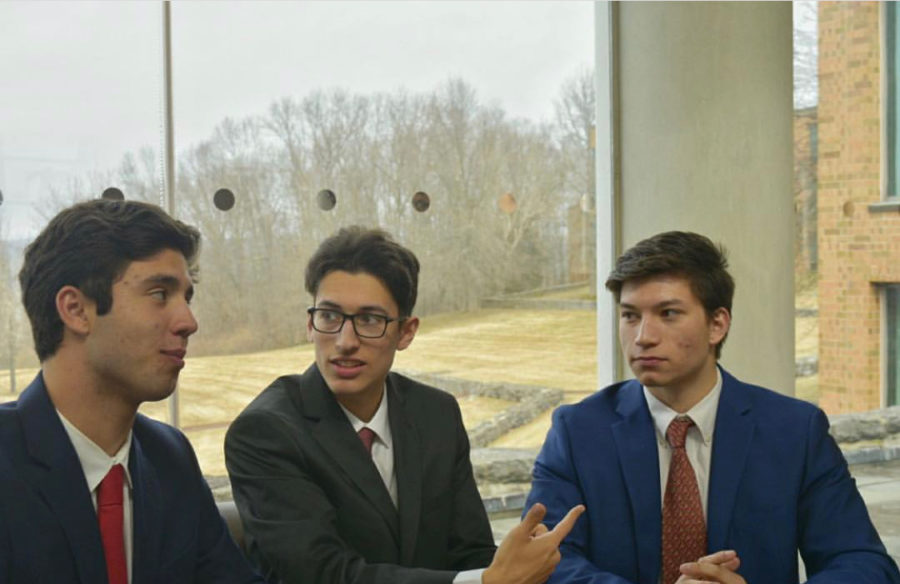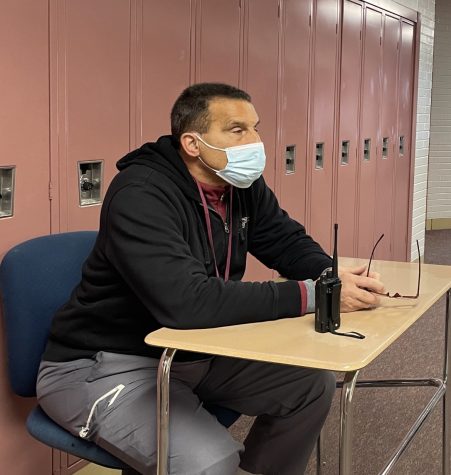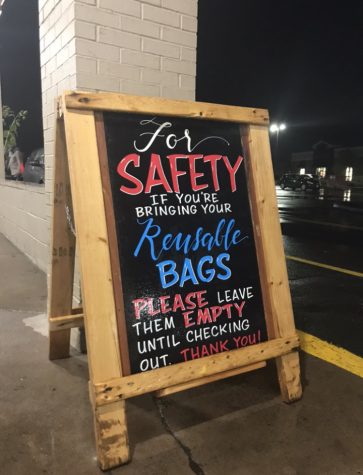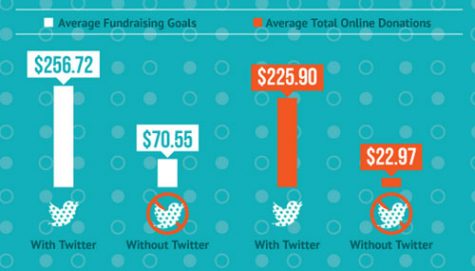Capstone program prepares stduents
Preparing for the future– Seniors Max Russo, Nico Machado, and Josh Ngeow participate in a discussion at the recent International Business Machines conference. They are all part of the Entrepreneurship Commerce capstone at the high school.
May 1, 2019
Through years of schooling, students are encouraged to develop a passion or source of interest for their life-consuming career that takes place after high school and, for the majority, starts during college. Although students can easily fall into a passion,
it is difficult to have full faith that a passion can transform into a career or if it’s truly the path they want to follow for the rest of their lives.
A way students can figure out if a passion or interest can be a long-time career is enrolling in a capstone class. There are a variety of capstone courses offered at the high school: The Art of Leadership, Career Exploration, Crafts: Developing a Global Perspective, Custom Capstone, E-Commerce Entrepreneurship, Education Internship, Engineering Design and Development, Equity, Advocacy, and Social Justice (Pilot), Global Problem Solving, Healthcare 21, Journalism in the Digital Age, Performer to Podium, Science Research, and Sports Analytics. Each of these courses is offered to both juniors and seniors, aside from
the Education Internship and Career Exploration, which are only available for seniors.
With this wide selection of courses, students have the opportunity to dive into a career interest before declaring an official major or jumping into a full-time job. Each capstone is different, but the overall goal of each course is to grasp a deeper understanding of a specific field of work and to leave the class with more knowledge on the subject than previously known.
According to the Glossary of Education Reform, capstone projects are normally organized to encourage students to think critically, solve challenging problems, and develop skills such as oral communication, public speaking, research skills, teamwork, self-sufficiency, goal setting, etc. The culmination of these skills developed from participating in a capstone will help prepare students for college, modern careers, and adult life.
What makes a capstone course stand out is that it costs no money to enroll, and it does not count as an actual grade towards a student’s Grade Point Average (GPA). This allows for students to be more relaxed while completing the course, and to focus more on the quality and love for the work, instead of itching for a perfect grade. The majority of students go into a specific capstone course to follow an interest that they want to pursue outside of high school.
For example, if a student wants to become a teacher or go into an education career, they might choose to enroll in the Education Internship capstone in order to learn more about it. By doing so, the student, after completed the capstone, can either validate their interest in teaching and follow that passion or it will show that they do not enjoy this certain field of work and do not want to pursue this after high school. Additionally, if none of the capstone courses seem enticing to a student because they do not fall in the same category as their interest, there is Custom Capstone, which allows the student to base their project and class on their personal passion.
With this said, we believe it is important for every student to enroll in any capstone class at least once in their high school career, in order to further prepare them for life outside of high school, and to show if a specific career is or is not for them.





